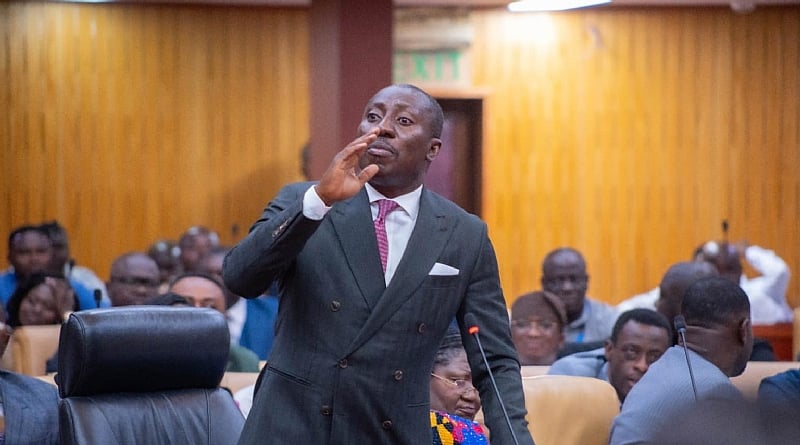The Ghanaian political landscape has been enlivened by a heated debate surrounding a proposed $360 million loan facility from the World Bank’s International Development Association (IDA). The opposition New Patriotic Party (NPP) has vehemently criticized the ruling National Democratic Congress (NDC) government, accusing it of a lack of transparency and clarity about how the funds will be utilized. This loan, part of the Second Resilient Recovery Development Policy Financing, is intended to bolster macroeconomic stability, reignite economic growth, curb inflation, and improve the lives of Ghanaians. However, the NPP minority caucus argues that the government’s explanation of the loan’s specific purpose has been vague and potentially misleading. They contend that the NDC, while in opposition, strongly condemned the NPP’s borrowing practices, accusing them of accumulating excessive debt. Now, the NPP suggests, the NDC is engaging in the same behavior it once criticized.
Central to the NPP’s critique is the claim that the government is deliberately obfuscating the nature of the transaction. While the government refers to it as a “financing agreement,” the NPP insists it is, in fact, a loan. They argue that the language used in official documents and communications is intentionally vague, designed to obscure the true nature of the arrangement, which they believe is a loan facility. This deliberate ambiguity, they contend, is a cynical attempt to avoid the political consequences of admitting to further borrowing, particularly given the NDC’s past criticism of the NPP’s debt accumulation. The NPP contends that the government is attempting to present a narrative of fiscal prudence while simultaneously incurring substantial debt.
According to the Deputy Minister of Finance, Thomas Nyarko Ampem, the funds are earmarked for several key areas. These include settling arrears owed to road contractors, establishing a safety net for the economy, providing support to vulnerable groups, and ultimately alleviating poverty. Furthermore, the financing aligns with the ongoing International Monetary Fund (IMF) program, which Ghana entered in 2023 under the previous NPP administration. As part of this program, Ghana requested $900 million in assistance, with the World Bank disbursing an initial tranche of $300 million in March 2024. Mr. Ampem also indicated that the government plans to secure an additional $400 million in financing by October of this year, further contributing to the country’s economic recovery efforts under the IMF program.
The NPP minority leader, Alexander Afenyo-Markin, has accused the NDC of hypocrisy, pointing to their past criticism of the NPP’s borrowing practices. He argues that their current actions contradict their previous stance, suggesting a lack of principle and consistency. Echoing this sentiment, Kojo Oppong Nkrumah, the NPP MP for Ofoase Ayirebi and Ranking Member on the Parliament’s Committee on Economy and Development, has reinforced the accusation of deliberate obfuscation. He maintains that the government is intentionally using opaque language to disguise the loan as a financing agreement, thereby misleading the public and parliament.
This disagreement highlights the complex and often contentious nature of economic policy in a developing country like Ghana. The government argues that the financing is necessary for economic recovery and poverty reduction, supporting key infrastructure projects and social safety nets. They might also contend that the financing agreement, while technically a form of debt, differs from traditional loans in terms of its conditions and purpose, justifying their choice of terminology. However, the opposition’s concerns about transparency and accountability raise important questions about the government’s fiscal management and its commitment to open and honest communication with the public. The NPP’s accusations of hypocrisy further underscore the political dimension of these debates, with both parties leveraging past positions and rhetoric to gain advantage.
The controversy surrounding this loan facility reflects broader debates about the role of international financial institutions, the management of public debt, and the balance between economic growth and fiscal responsibility. The approval of the loan facility by Parliament, despite the NPP’s objections, underscores the NDC’s control over the legislative process. However, the NPP’s vocal critique raises important questions about the government’s transparency and accountability, which will likely continue to be debated in the public sphere. The effectiveness of the loan in achieving its stated objectives, and its long-term impact on Ghana’s economy and debt levels, will ultimately be the true measure of its success.


